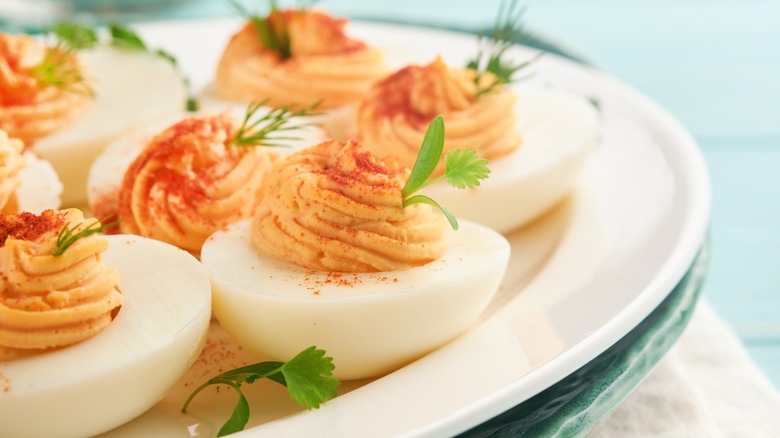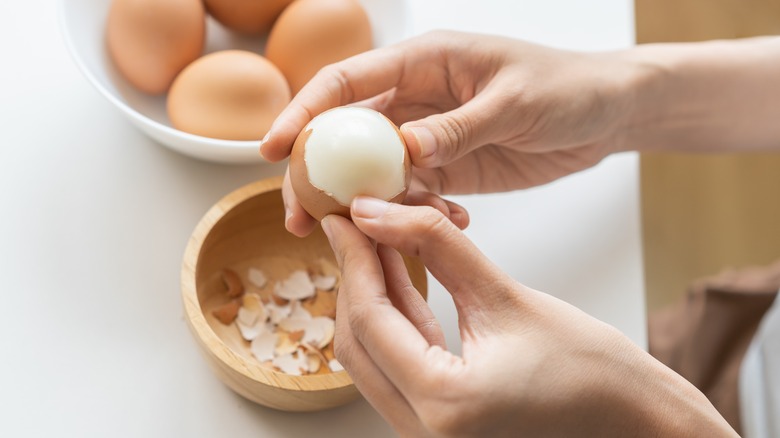For The Best Deviled Eggs, Be Sure To Avoid This Mistake
For those who love them, deviled eggs are anything but devilish. As a classic and comforting appetizer, they're the sign of a good party, and their nostalgic essence makes them a great conversation-starter, too. Whether they've been sprinkled with paprika or been given a major upgrade with all the ingredients of Mexican street corn, the beauty of deviled eggs is the endless opportunity for customization. But before making them all nice and pretty, it's important that the core recipe for them has been executed properly from the very beginning, starting with the eggs you choose to use for them. While there's nothing better than super fresh eggs from the farmer's market, using those eggs in your deviled eggs recipe is actually a mistake, as the shells will be especially difficult to peel.
When eggs are fresh, the albumen, otherwise known as the egg white, has a very low pH due to the production of CO2. The presence of CO2 makes the egg white acidic. The inner membrane of the egg, which is that thin layer between the white and the shell, is harder to break due to this acidity. Therefore, when the egg is fresh, this leads to a strong bonding between the white and the membrane — and if you've ever tried to peel a boiled fresh egg, you know that this is a super tight bond, as the egg is difficult to peel. Overtime, this bond becomes looser, so try to wait to boil your eggs for few days for the smoothest results.
The best tips for peeling boiled eggs
Opting for not-so-fresh eggs is just one of the ways you can ensure your eggs won't be a pain to peel. In fact, there are plenty of tips for peeling hard boiled eggs that go beyond the egg's age. One of the best tips involves the actual boiling process: You want to make sure that you place your eggs into water that's already boiling, rather than letting them sit in still water while it slowly reaches a boil. If the egg is cooked super slowly, the membrane is more likely to stick to the white, causing that familiar issue that is bound to ruin your batch of deviled eggs.
Another trick to easily peel a hard boiled egg involves peeling the eggs straight from the refrigerator, after they've already cooled down for a few hours. Remove them from the fridge and place them in warm water for five to ten minutes, allowing the membrane and the white to separate more. Then, submerge the egg under cold water to peel it. This makes it easier to get the tiniest pieces of shell off — and it makes far less of a mess. If your boiled eggs are nice and smooth, your deviled eggs will be, too.

